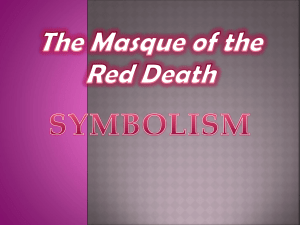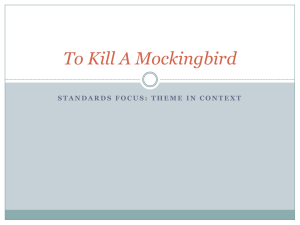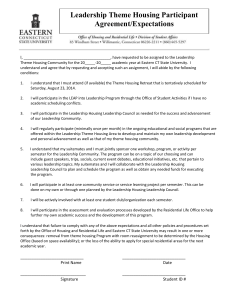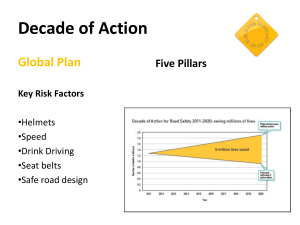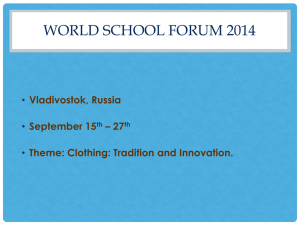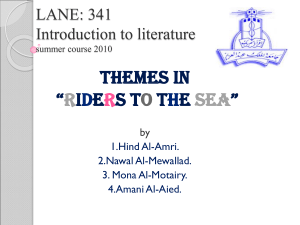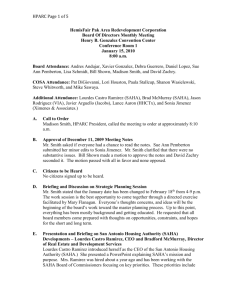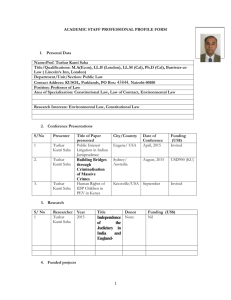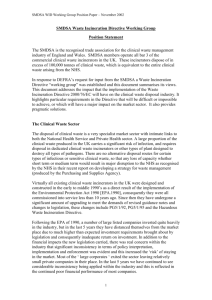here - Science & Technology Studies
advertisement
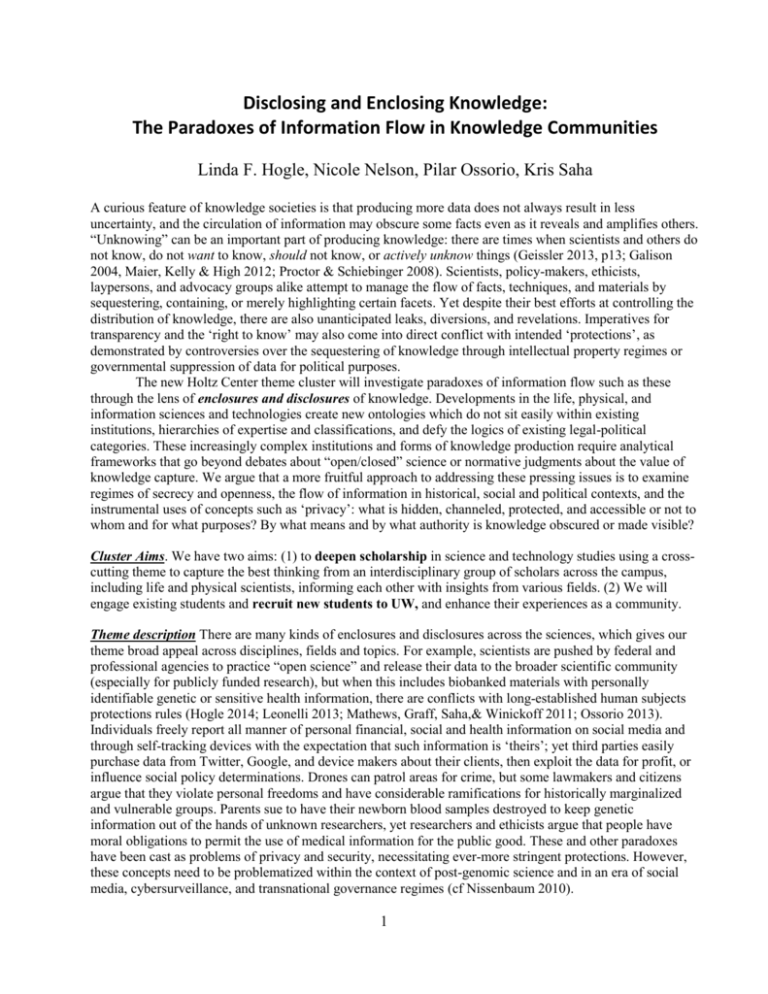
Disclosing and Enclosing Knowledge: The Paradoxes of Information Flow in Knowledge Communities Linda F. Hogle, Nicole Nelson, Pilar Ossorio, Kris Saha A curious feature of knowledge societies is that producing more data does not always result in less uncertainty, and the circulation of information may obscure some facts even as it reveals and amplifies others. “Unknowing” can be an important part of producing knowledge: there are times when scientists and others do not know, do not want to know, should not know, or actively unknow things (Geissler 2013, p13; Galison 2004, Maier, Kelly & High 2012; Proctor & Schiebinger 2008). Scientists, policy-makers, ethicists, laypersons, and advocacy groups alike attempt to manage the flow of facts, techniques, and materials by sequestering, containing, or merely highlighting certain facets. Yet despite their best efforts at controlling the distribution of knowledge, there are also unanticipated leaks, diversions, and revelations. Imperatives for transparency and the ‘right to know’ may also come into direct conflict with intended ‘protections’, as demonstrated by controversies over the sequestering of knowledge through intellectual property regimes or governmental suppression of data for political purposes. The new Holtz Center theme cluster will investigate paradoxes of information flow such as these through the lens of enclosures and disclosures of knowledge. Developments in the life, physical, and information sciences and technologies create new ontologies which do not sit easily within existing institutions, hierarchies of expertise and classifications, and defy the logics of existing legal-political categories. These increasingly complex institutions and forms of knowledge production require analytical frameworks that go beyond debates about “open/closed” science or normative judgments about the value of knowledge capture. We argue that a more fruitful approach to addressing these pressing issues is to examine regimes of secrecy and openness, the flow of information in historical, social and political contexts, and the instrumental uses of concepts such as ‘privacy’: what is hidden, channeled, protected, and accessible or not to whom and for what purposes? By what means and by what authority is knowledge obscured or made visible? Cluster Aims. We have two aims: (1) to deepen scholarship in science and technology studies using a crosscutting theme to capture the best thinking from an interdisciplinary group of scholars across the campus, including life and physical scientists, informing each other with insights from various fields. (2) We will engage existing students and recruit new students to UW, and enhance their experiences as a community. Theme description There are many kinds of enclosures and disclosures across the sciences, which gives our theme broad appeal across disciplines, fields and topics. For example, scientists are pushed by federal and professional agencies to practice “open science” and release their data to the broader scientific community (especially for publicly funded research), but when this includes biobanked materials with personally identifiable genetic or sensitive health information, there are conflicts with long-established human subjects protections rules (Hogle 2014; Leonelli 2013; Mathews, Graff, Saha,& Winickoff 2011; Ossorio 2013). Individuals freely report all manner of personal financial, social and health information on social media and through self-tracking devices with the expectation that such information is ‘theirs’; yet third parties easily purchase data from Twitter, Google, and device makers about their clients, then exploit the data for profit, or influence social policy determinations. Drones can patrol areas for crime, but some lawmakers and citizens argue that they violate personal freedoms and have considerable ramifications for historically marginalized and vulnerable groups. Parents sue to have their newborn blood samples destroyed to keep genetic information out of the hands of unknown researchers, yet researchers and ethicists argue that people have moral obligations to permit the use of medical information for the public good. These and other paradoxes have been cast as problems of privacy and security, necessitating ever-more stringent protections. However, these concepts need to be problematized within the context of post-genomic science and in an era of social media, cybersurveillance, and transnational governance regimes (cf Nissenbaum 2010). 1 These issues intersect with calls to conduct science in a new way that puts data analytics at the core of knowledge production. “Data-driven science” employs “Big Data” techniques and machine-learning algorithms to seek associations among data points, rather than using conventional statistical and hypothesisdriven techniques. This enables the aggregation of data from many sources, mediated by new technologies: environmental, social/behavioral, biological collected through environmental sensors; self-monitoring, medical record and biorepository data; web-trawling of internet communications and more (Hogle 2013). In disease modeling and cancer research, the aggregation of data and use of new analytic tools is leading to new taxonomies of disease (Saha & Hogle 2014). In oncology, data-driven science and genomic tumor analyses have stimulated interest in new clinical trial design and infrastructures, and new translational interfaces between laboratories, clinics and patients (Nelson et al, under review). Rather than treating translational research as a flow out of the laboratory and into the clinic with particular blockages along the “pipeline,” the enclosure/disclosure approach emphasizes how knowledge can remain unevenly distributed amongst actors operating in a shared translational research arena. How are boundaries and classifications being redrawn and with what implications for patients and the organization of medicine (Bowker & Star 2000)? We take inspiration from scholars such as Hilgartner (2012), who uses the concept ‘regimes of enclosure’ to explore the movement of information through spaces (labs, bodies, spaces of exchange, the ‘cloud’). Professor Hilgartner has enthusiastically agreed to serve as an advisor to our cluster. We have also identified faculty in Bioinformatics, the Wisconsin Institutes for Discovery (life, physical and informatics scientists), Engineering, Art, Legal Studies, Digital Studies, Law, Communication Arts, LIS, Anthropology, Sociology, Political Science, Psychology, Theater Studies, History and more whose work would contribute. Questions we might pursue include (among others): As objects of knowledge travel in and out of visibility and through differing social, scientific and governance domains, how might they be reshaped in the process? How do measuring and monitoring tools, techniques and theories participate in enclosures or disclosures (ex: how are statistics and imputation algorithms used to politicize health or environmental issues)? How is “the future” invoked to legitimate tracking of some data (and not others) (ex: in environmental impact reporting as lead mining debates unfold in Wisconsin)? (Bowker 2008; Mitman, Murphy & Sellers 2004). The Holtz Center Interactome. An interdisciplinary faculty working group (FWG) has been named to provide guidance and leadership for the initiative. Members include: Laurie Beth Clark (Art) Lucas Graves (Journalism Mass Comm) Jon Mackenzie (English, Digital Humanities) David Page (Biostat & Med Info, Comp Sci) Alan Rubel (Legal Studies) Paul Wilson (Engineering Physics, WID) Kristen Eschenfelder (Library & Info Sciences) Jenell Johnson (Life Sci Comm) Greg Nemet (LaFollette Sch, Nelson Inst) Shiela Reaves (Life Sci Comm) Michael Vanden Heuvel (Theater Studies) Bas Rokers (Psychology, Eye Inst). The PIs for the project include Linda Hogle (Med Hist & Bioethics, Anthro, WID), Nicole Nelson (History of Science), Pilar Ossorio (Law, Med Hist & Bioethics, MIR) and Kris Saha (Biomedical Engineering, Med Hist & Bioethics, WID) Nodes: We will solicit additional participation from faculty and students with relevant research and teaching interests. The launch reception will provide an opportunity for potential participants to meet each other, share ideas, pose provocations, and begin forming nodes of activity. Participants are encouraged to identify sub-themes or ideas related to their interests and expertise within the broad description we have described above, and hopefully form clusters to pursue activities of interest: some 2 groups may wish to meet to discuss works-in-progress; others may have more specific goals, such as collaborating on a grant proposal or paper, while others may wish to propose visiting speakers or symposia. Through our interactions we will build a foundation of knowledge with which to contribute to existing and new courses; identify co-teaching and collaborative research projects; identify potential gaps on campus where we could propose novel initiatives. ■ A web site has been set up, found at sts.wisc.edu/disclosingenclosing Activities: ■ A break-out discussion was held Sept 24 in conjunction with the Morgridge Institute for Research symposium, “Software as a Medical Device” ■ A wine and cheese reception to launch the theme was held on October 28 at Steenbock’s. A diverse group of faculty and students attended from Art, Bioinformatics, Medical History and Bioethics, Journalism & Mass Communications, School of Library & Information Sciences, Psychology, Community & Environmental Sociology, LaFollette School of Public Policy, History of Science, Biomedical Engineering, Chemical Engineering, Legal Studies, Forest and Wildlife Ecology, Anthropology, English, Rhetoric Program, Information Technology, 4D Arts, Pediatrics, Life Sciences Communications, Sociology, Law School, and Pharmacy ■ Speaker series: ▪ Stephen Hilgartner was in residence in September-October, giving 2 presentations plus a discussion of his forthcoming book. ▪ Louise Amoore (April 9 2015) Author of The Politics of Possibility: Risk and Security Beyond Probability in conjunction with the Information Ethics Roundtable ▪Alberto Cambrosio (September 2015) “Genomic medicine & reframing of ‘translational’ research” ▪ Additional speakers to be named ■ November (TBD) organizational meeting with new nodes ■ A half-day symposium in Spring 2015 will include presentations from the cluster. ■ A paper/poster competition for students. 1st place prize will be an opportunity to interact with a scientist or government/policy official of their choice (key faculty will facilitate). Poster entries will be displayed in the WID Town Center; theme faculty and students will be present to interact with visitors. ■ TED talk-style videos will introduce provocations developed by Cluster affiliates and engage publics ■ Summer Short Course (2016): A three-day concentrated short course on topics developed by the WG will bring 3 external and 3-4 internal speakers to teach focused sessions with approximately 20 graduate and postdoc students from the US and beyond. The summer course will include targeted content plus mixed methods instruction (for example, video/film/visual studies, archival work, and digital tools and analysis) ■ OTHER POSSIBILITIES: ▪“Encounters” Series: paired participants will interview each other on topics of mutual interest, or will debate ▪ Other novel ideas as defined by participants. 3



